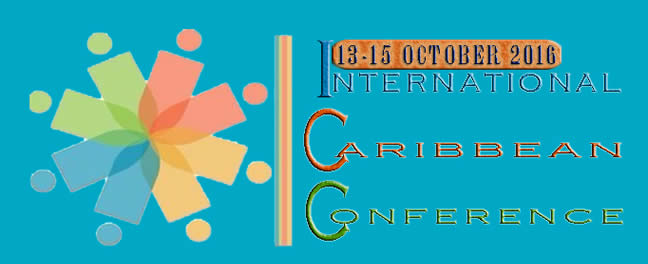Call for Papers
The Caribbean area is not a static, singular and homogenous enclave, but a heterogenous, dynamic and permeable entity, which constitutes a « melting pot » caught up in a brownian motion, a macro-cultural context blended in a mosaic of divergence and convergence. The authors of Éloge de la créolité stress this clearly: « Our History is a braid of histories. We had a taste of all kinds of languages, all kinds of idioms. » Moreover, their intention is to express « a kaleidoscopic totality, that is to say, the non-totalitarian consciousness of a preserved diversity ». Also, it could be possible that, given the modalities of its make-up and the historical processes involved, the Caribbean area might be an open specificity whereby constructions of identity and being are conceived singularly and collectively.
From this perspective, grasping the human, cultural, literary and artistic realities of the Caribbean in terms of representation(s) seems applicable. Emile Durkheim states that « representation is not a simple image or reality », and that instead, it is « a force, which creates a whirlwind of organic and psychological phenomena around us ». In a Caribbean space, so affected by the ravages of History, the representation of « self » and of the subject is constantly and ineluctably determined in such a way, in this instance, by « organic and psychological phenomena », as to have an impact on the most diverse cultural forms. Furthermore, it is pertinent to question whether the « tout-monde » enunciated by Edouard Glissant as a constituent of a « poetics of relation », entailing a broad vision of culture, can provide a significant insight.
By focusing on the historical aspect, in other words, articulating the lessons learned through observation and analysis of the present time, the interpretation of identity constructs, this interdisciplinary international conference seeks to understand the Caribbean without any linguistic or cultural exclusiveness.
It seeks, on the one hand, to assess previous attempts by the scientific community to « speak » and « think » the Caribbean, as well as formulate new hypotheses in three areas – analysis of the processes through which inequitable and extremely violent relationships between peoples and classes, for a long time perpetuated by slavery, have « informed » Caribbean societies ; questioning the use of a « borrowed » language for communicaton and/or creation ; re-assessing categories and notions through which criticism tends to comment and « territorialize » Caribbean literary productions or writers from economic and social Caribbean formations.
This conference will allow participants to re-examine the relationship between the Caribbean and the rest of the Americas, Africa, Asia and Europe: in History, the imaginary, the cultures, in the fantasy world of the subjects, and in the collective « unconscious ». Moreover, it will lead them to delve into the « region’s » multi-cultural social structures, envisaged as a laboratory of American « modernity », and not as a margin or a disinherited annex to it. Moreover, it will propose that they question the challenge of « homo-hegemonization » (Jacques Derrida ) or the « silent domination » (Patrick Chamoiseau) since the effects of homogenization brought about by globalization tend to ignore the dynamics of the diversity of cultural forms – in the areas of languages, literature, film, and other artistic forms.
The socio-political situation and how it unfolds in the region will finally be at the heart of the discussions during this event, since all Caribbean countries are not independent and certain territories are under the authority of foreign powers such as England, France, Holland. Part of the discussion will attempt to determine whether in the Caribbean, disparities are manifested at the economic and socio-cultural level, and whether, in order to have a promising future, they must rely on agreements such as the FTAA or CARICOM.
We invite proposals in French, English, Spanish and Portuguese (and also Creole) for single papers and full panels (composed of at least 3 papers) on the themes of the conference and on the following non-exhaustive list of topics:
- Fragmentations imposed by history and colonial heritage
- Creoleness/creolisation
- Theoreticians of Caribbean culture and identity (Chamoiseau, Glissant, Brathwaite, Benítez-Rojo)
- The linguistic aspect (the interaction of languages, the history of creole, etc.)
- The Caribbean and questions of domination/emancipation of populations, the struggle of social classes and the « battle of the sexes »
- Caribbean cinema
- The effects of globalization
- Economic advantages in the Caribbean area
- Strategies for evolving towards a consolidated regional « integration »
- Intra-Caribbean politics and the opening up of the Caribbean to the world

